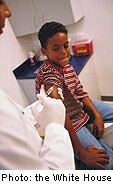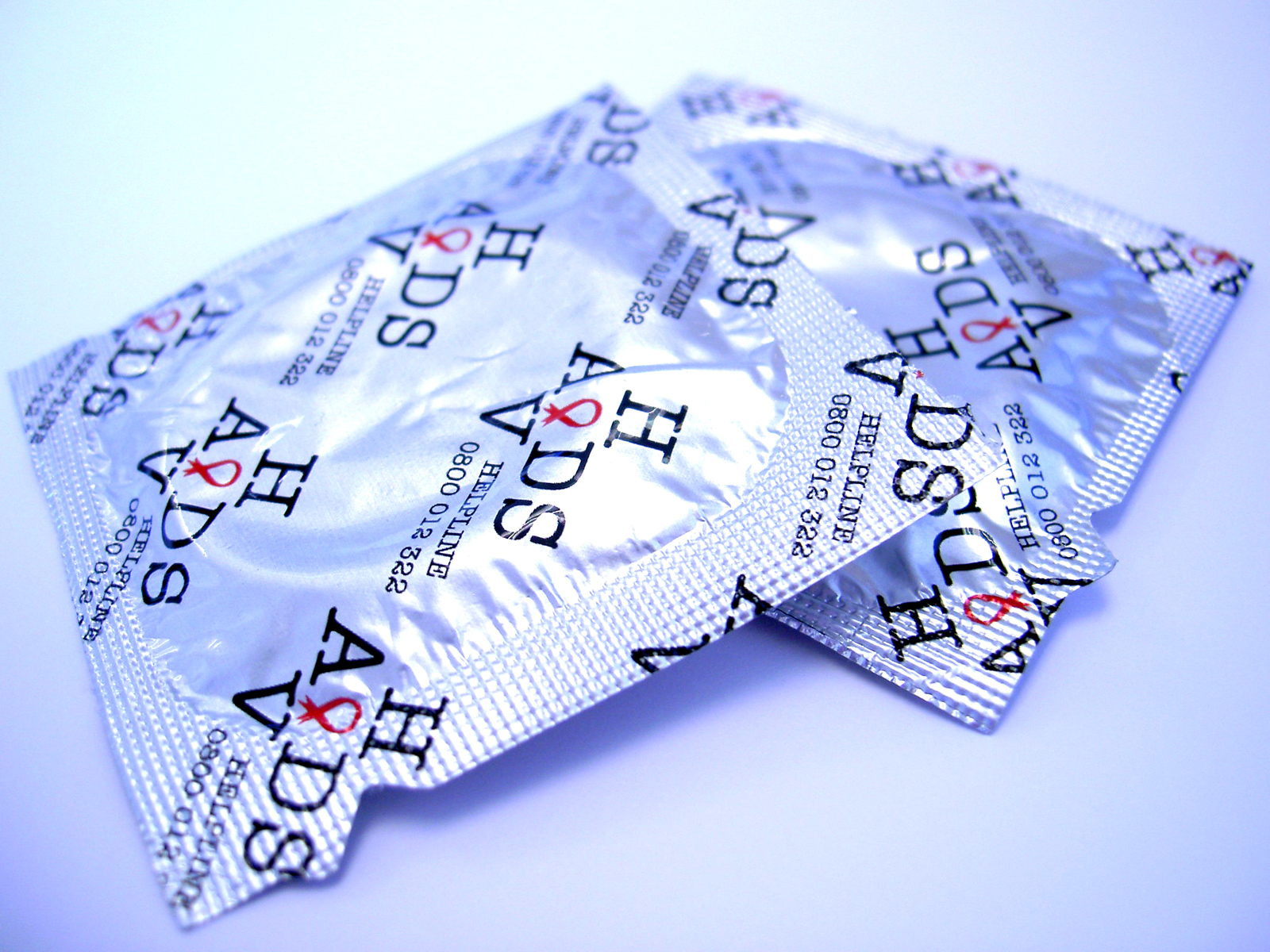
TUESDAY, Feb. 1 (HealthDay News) — Teenagers need a booster shot to protect them from meningococcal meningitis, a potentially deadly infection of the tissue around the brain, while all kids should have up-to-date whooping cough vaccines in light of recent outbreaks, according to new recommendations from pediatric experts.
The American Academy of Pediatrics issues updated vaccination guidelines annually. Its new schedule, released Feb. 1 in the journal Pediatrics, is very similar to last year’s recommendations.
Yet even without major changes, pediatricians said the revised schedule is a good opportunity to remind parents to make sure their children’s vaccines are up to date.
“Immunizations have been the most effective medical preventive measure ever developed, but some people who live in the United States right now don’t appreciate how tremendously protected they’ve been because of vaccines,” said Dr. Michael Brady, chairman of the American Academy of Pediatrics’ committee on infectious disease.
“There are still children around the world dying of measles and polio. The vaccination schedules are designed to get vaccines to the child before they are at the greatest risk,” he added.
Among this year’s recommendations:
-
All children aged 6 months to 18 should get an annual flu shot.
“Influenza can be a very, very serious disease, and it results in significant deaths every year,” Brady said. “People get worried about the elderly, but children 2 years old or less have rates of hospitalization that are higher than the elderly.”
Children aged 6 months to 8 years vaccinated for the first time, or those who only had one dose of a previous flu vaccine, need two doses of the 2010-2011 seasonal flu vaccine, the guidelines say.
-
With whooping cough (pertussis) outbreaks on the rise and an epidemic in California, parents need to make sure their children and teens have the recommended whooping cough vaccines. According to experts, the resurgence of whooping cough could stem from some parents shunning vaccines because they believe the shots might cause autism — a theory based on a now-discredited study.
“Scaring parents away from immunizing their children by the false claims of a connection between MMR and autism created a significant concern by parents about the safety of all vaccines,” Brady said. “This resulted in a decrease in vaccine acceptance of not only MMR but all other vaccines, including pertussis.”
Another expert noted the same trend. “In the last 10 years, the number of pertussis cases has increased dramatically. Many children, especially very young ones, have needed to be treated for pertussis in the hospital and some have even died,” said Dr. Henry Bernstein, chief of general pediatrics at the Cohen Children’s Medical Center of New York and a member of the AAP committee.
Children are supposed to get immunized at 2, 4 and 6 months and between 15 and 18 months and get a booster around age 5, usually with a three-vaccine formulation known as DTaP (diptheria, tetanus and pertussis).
Children aged 11 to 12 should also have a booster because the vaccine’s effectiveness wanes over time. This year, the AAP recommends that kids 7 to 11 who are behind on their pertussis immunizations also get a booster.
-
Pneumococcal vaccine is typically given at 2, 4, and 6 months and again between 12 and 15 months. Children who didn’t get their scheduled pneumococcal vaccinations and are age 5 or under should get vaccinated with a newer formulation of the vaccine, Prevnar 13, which guards against additional strains of pneumococcal disease.
Pneumococcal disease is caused by a common type of bacteria — pneumococcus. Illnesses caused by pneumococcus include pneumonia, meningitis, middle ear and sinus infections, and bacteremia, an infection of the blood, according to the U.S. National Foundation for Infectious Diseases.
-
At about age 16, adolescents should receive a meningococcal meningitis booster shot.
The previous guidelines called for 11-year-olds to receive a meningococcal booster. Later research found that protection from the shot starts to fade after about five years, precisely at the time when teens’ risk of getting the disease increases.
Babies under age 1 and adolescents between the ages of 16 and 21 are at higher risk of contracting the illness, which spreads through airborne droplets. According to the U.S. Centers for Disease Control and Prevention, college freshmen living in dorms have a slightly increased risk for bacterial meningitis, which can cause brain damage, hearing loss and death.
-
Boys aged 9 to 18 “may” get the HPV shot, which protects from some strains of genital warts, particularly those that lead to cervical cancer in women. The shot is recommended for all girls at age 11-12.
-
Babies who didn’t get their recommended dose of hepatitis B vaccine at birth should have their final dose no earlier than 6 months.
The AAP guidelines were approved by the American Academy of Family Physicians and the CDC’s Advisory Committee on Immunization Practices.
More information
The U.S. Centers for Disease Control and Prevention has more on the vaccine schedule.

